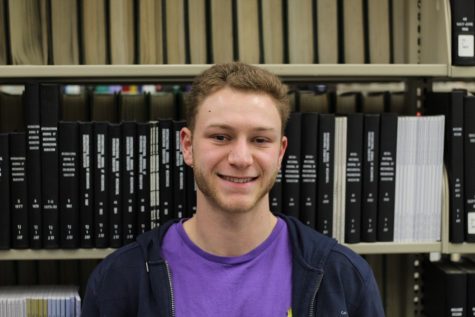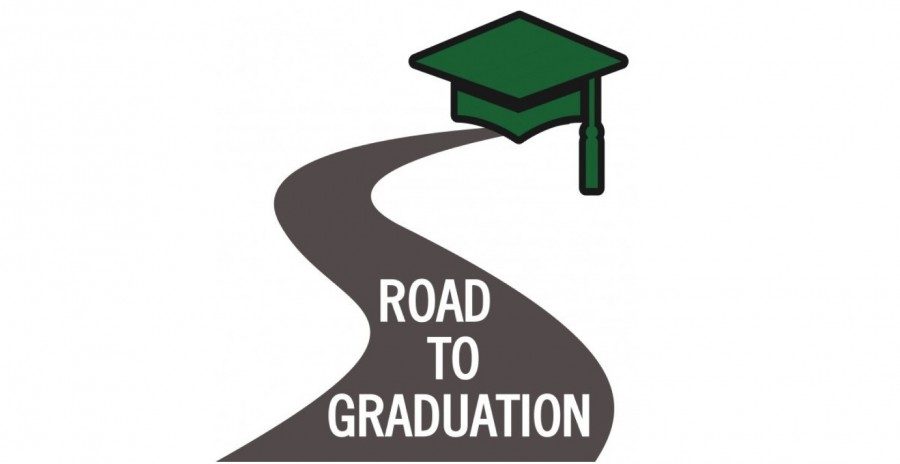Road to Graduation: Students prep for MCATs, careers in medicine
Senior year isn’t all fun and games. For many, the stress of post-graduation plans can be overwhelming, which is why we’re introducing our newest column, Road to Graduation. Every week we will check in with seniors about their post-grad plans and talk about their anxieties and aspirations.
For many students planning to attend medical school, the Medical College Admission Test is perhaps one of the biggest obstacles on the road to a successful career.
The MCAT is a standardized exam, administered by the Association of American Medical Colleges, which tests a student’s ability to solve problems by applying scientific knowledge, and it can be a deciding factor in the medical school admissions process.
ATTENTION: Registration for the July-September 2018 #MCAT dates is now open. To select a test date and location, go to https://t.co/edDkim1YNF. pic.twitter.com/7VIa3IgJJL
— MCAT (@AAMC_MCAT) February 7, 2018
“It’s a six-hour test, not including breaks,” senior Izzat Shbeeb said. “Most testing centers want you to report at 7 a.m. The night before is always a pain because nerves. You’re just stressed out, don’t really get much sleep. And so the testing experience itself is not a pleasant one.”
The MCAT is both an expensive and strenuous test. Students say, however, that being prepared can make all the difference. There are many ways for students to get ready to take the MCAT, such as taking practice tests and attending classes tailored to teaching students various test-taking strategies.
“I started studying for it in October of 2016,” senior Claire Chapel said. “I took a class … that spanned about ten weeks, four nights a week, for two hours a night. And I took that for about the second half of that fall semester … I probably ran through thousands of practice problems.”
Among Tulane’s many student-run clubs, there are some which aim to help students navigate a career in medicine by providing necessary resources and insight into applying to medical schools.
“A lot of the events that the Premedical Society hosts are speakers from medical schools,” senior Allee Defelice said. “It really kind of gave me confidence in knowing what’s down the road, even as a freshman to hear from those people, but it also got you connected to other pre-meds.”
Though many factors, such as GPA and extracurricular activities, come into play when applying to medical schools, the MCAT remains an important and crucial aspect of the admissions process.
tulane students out here double majoring in classics and computer science, in the business frat, studying abroad in thailand, interning at the Capitol,and are on the pre-med track all at once
— annie (@anniebcaffery) January 26, 2018
“Your GPA and the MCAT gets you into the door because they do something called screening, where they screen any of the primary applications that get sent to them,” Shbeeb said. “And if you don’t reach a certain MCAT score or sometimes GPA requirements, they won’t even give you a secondary application.”
Students can prepare for the MCAT by taking classes at Tulane which cover material likely to be featured on the test, such as science courses like chemistry, physics and, especially, biology.
“Upper-level biologies tend to be a lot of what the MCAT focuses on because the MCAT is no longer a rote memorization-based test,” Shbeeb said. “I don’t think the choice of major matters, but picking the right classes to prepare you is definitely very important.”

Read about Sam Shovers in last week’s installation of Road to Graduation about students applying to national scholarships.
Though it is important to take classes relevant to the MCAT, it takes more than a high score on a test to get into medical school, according to DeFelice.
“Remember why you want to go into medicine and focus on that,” DeFelice said. “It’s really easy to get lost … and you get kind of caught up in the moment, and you forget the reason you’re doing all of it. So, for me it came back to, I want to help people, and this is just a stepping stone on getting to that point.”
Your donation will support the student journalists of Tulane University. Your contribution will allow us to purchase equipment and cover our annual website hosting costs.



Leave a Comment